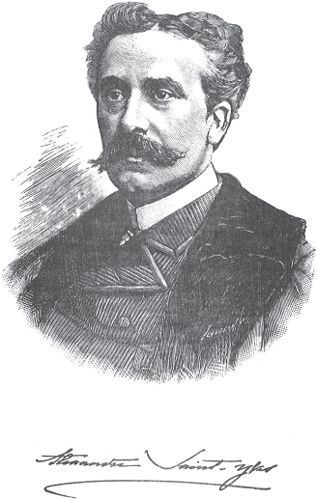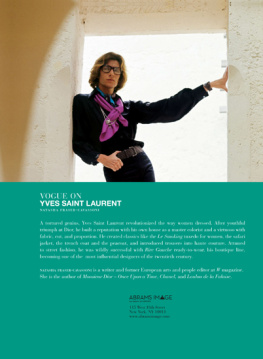THE
KINGDOM
OF AGARTTHA
A JOURNEY INTO THE
HOLLOW EARTH

MARQUIS ALEXANDRE
SAINT -YVES D ALVEYDRE
TRANSLATED BY JON E. GRAHAM

Inner Traditions
Rochester, Vermont
CONTENTS
INTRODUCTION
Saint-Yves dAlveydre and the Agartthian Connection
by Joscelyn Godwin






Alexandre Saint-Yves dAlveydre
PREFACE
I have long hesitated before writing these pages, torn between emotions of anxiety, humility, and the complete annihilation of myself.
An invincible resolve enabled me to take a stand, certain of the good I would be doing, not only for the noble minds who have supported my earlier works, but for the peoples of the two parts of the world I am addressing in this book.
But first and foremost I wish to express my profound gratitude to the elite intellects and souls who have had the courage to testify publicly in writing of their approval of the physical law of History and human societies: Synarchy, in other words the opposite of Anarchy.
In this constitutional process, the former President of the Bar of Paris, Ernest Desmarest, and Hippolyte Destrem, author of Perte ou salut de la France [Ruin or Salvation of France], have witnessed the methodical reorganization of international relations (Minutes of the Congress of Brussels, Petit Rpublicain, la Presse [Little Republican, the Press]).
His Lordship Count Charles de Montblanc has recognized therein the scientific law of history and that of the Self-Government of societies (Le Figaro ).
His Lordship Baron Theodore de Cambourg took particular note therein of national representation through their specialties as well as of what I call the third Chamber. He has made himself the apostle for the creation of a Chamber for the National Economy, whose purpose is to balance the politics inspired by the passions of each party by adjusting the weight of all their competing interests (Gazette de France ).
In the Synarchic process, the Canon Roca, former laureate of the school of advanced studies of the Carmelites, has noted the possibility of an organic reconciliation between faith and science; between the ecclesiastical teaching bodies and the universities; and between the various forms of worship and secular society (La Crise fatale et le salut dEurope [The Fatal Crisis and Salvation of Europe]; La fin de lancien monde [The end of the Old World]).
The Reverend Father Curci has seen in it a desirable intellectual and social government; he has no fear of advocating the attempt to establish such an entity (Il Socialismo cristiano [Christian Socialism]).
Pastor de la Fresnaye has rediscovered in it the Judeo-Christian termination of history as well as the positive law of solidarity (Courrier de la Gironde ).
Isaac Levy, Grand Rabbi of Vesoul, took particular note of the reconciliation of reason with faith, the concern of a government capable of guaranteeing the happiness of humanity, and the mutual peace between religions and teachings (Famille de Jacob [Jacobs Family]).
Louis Pauliat found confirmation in it of his belief in the return to a universal Synarchy (Nouvelle Revue [New Review]).
Charles Limousin had no fear of revealing the profound impression that the reading of the Missions made on his mind (Revue du mouvement social [Review of Social Movement]).
Ren Caill, an engineer, and Barlet, a licensed attorney, discovered in these books everything that tends to bring back to life the spirit of the ancient temple universities in which science and faith were one (Anti-matrialiste [Anti-Materialist]).
Monsieur de Sant-Albano sees in Synarchy the realization of the promises of Moses and the Christ, in which those of the 1789 revolution reemerge (Le High-Life ).
His Highness the Prince of Z. considers European Synarchy to be the necessary conclusion of the intergovernmental constitution inaugurated in 1648 by the Congress of Westphalia (Revue Internationale de Florence [International Review of Florence]).
Fabre des Essarts, taking a purely French and Republican perspective, has inaugurated a series of popular publications entitled Bibliothque synarchique [Synarchic Library]. In his first pamphlet, La Force, le Droit et les trois Chambres synarchiques [The Force, the Law, and the Three Synarchic Chambers], he took pains to emphasize the necessity of arming universal suffrage with a triple representation through the channel of specialties and skills.
I deeply regret being unable to cite all the other public testimonies that my Missions have elicited.
However, I cannot pass over in silence those given by the Revue moderne and the Moniteur universal, the latter of which was the work of an eminent university professor whom I wish not to name because of his official position.
Lastly, His Lordship the Baron Theodore de Combourg, Destrem, Garreau (general commissioner of marine affairs), and Marty (one of the presidents of the labor union), as well as Count Charles de Montblanc, have all given extensive study to the possibility of creating one of the three Synarchic Chambers, the Chamber in charge of the national economy (Projet dune Union conomique franaise [Plan for a French Economic Union]).
Thanks to these generous endorsements, I will be in more fortunate straits than Kepler, and will not die saying: One reader in one hundred years!
Not only have I been read by an intellectual elite who are conscious of the good I wish to do, but I have had the rare good fortune to see my thought come to life in these people and be transmitted into action under the impetus of their enlightened love for our country and humanity.
May I be permitted to express to them all my grateful affection.
A seed of social salvation sprouting in such good soil can henceforth not perish.
In addition to these public testimonies, I also wish to thank all those who in their letters or in person have given me such powerful encouragement, and if I refrain from naming the dearest and most flattering of these, it is out of a feeling of reserve, which I know they will appreciate.
I offer my book to all as proof to them of the perseverance of my efforts, which is the best means I have of thanking them for their indescribable support.
The names I have cited earlier offer the very noteworthy feature of belonging to members of all our religious denominations, our secular teaching establishment, our civil classes, and our political parties.
Synarchy is therefore a terrain for reconciliation as well as social salvation in one and all nations.
This is also the reason why my work has had the honor of receiving such violent attacks.
Next page

















